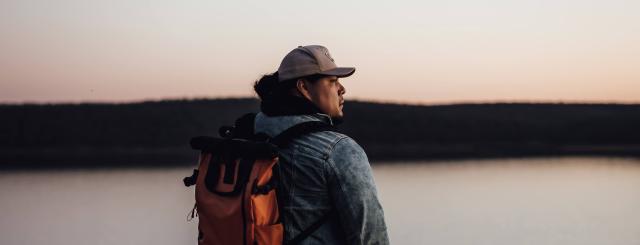The application deadline has now passed. No additional brief proposals will be accepted.
The Robert Wood Johnson Foundation (RWJF) will award up to $4 million in grants through the Evidence for Action (E4A) program to support research driven by Indigenous communities focused on advancing “upstream” solutions to promote health equity and wellbeing for Indigenous Peoples. The term “upstream” refers to systems, structures, laws, policies, norms, and practices that determine the distribution of resources and opportunities, which in turn influence individuals’ choices and behaviors.

What We’re Looking For
We’re looking for research led by and aligned with the priorities of Indigenous communities that embodies and contributes to the advancement of health equity, self-determination, and identity affirmation for Indigenous Peoples. Additionally, projects should center the needs, experiences, and strengths of Indigenous communities, such as thriving in the face of historical trauma; be reflective of Indigenous worldviews and concepts of knowledge, health and wellbeing; and be able to inform a specific course of action and/or establish beneficial practices. These projects may fall along a continuum of stages from initiating and developing research capacity and infrastructure to later-stage, sustained research efforts.
Who We’re Looking For
Preference will be given to applicant organizations that are Tribal entities (including those that are state recognized, federally recognized, or have no formal recognition status) or Indigenous Serving Organizations*, including Urban Indian Organizations. We particularly encourage applications from project directors who are American Indian, Alaska Native, Native Hawaiian, or otherwise Indigenous to the United States or its territories; researchers from organizations currently underrepresented among RWJF grantee institutions; and/or first-time applicants for an RWJF grant. Non-indigenous applicants, working in partnership with and with extensive experience working in service of Indigenous communities are also eligible.
Applicant Webinar Recording
Key Dates
March 1, 2024, 3pm EST: Brief proposals due. DEADLINE PASSED.
April 1, 2024: Applicants notified whether they are invited to submit full proposals.
June 28, 2024: Invited full proposals due.
July 31, 2024: Applicants notified of review committee decisions.
October 1, 2024: Grants start.
Acknowledgments
Applicant Frequently Asked Questions
The below list of questions was developed based on the E4A team’s experience working with potential applicants for former calls for proposals (CFP) and based on input from the Indigenous scholars and reviewers of the CFP. Questions and answers will be added throughout the brief proposal period as needed.
Image from Cody Hammer.
Text on the sign reads:
"you feel empty
because you were mistreated
yet you are held sacred,
no one cries alone around me"